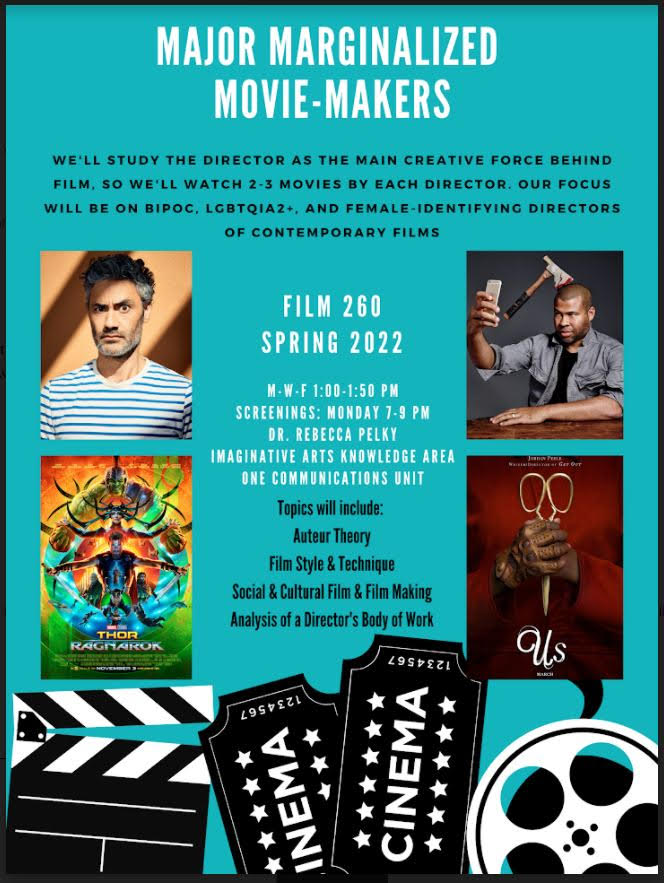
Course Description: Using the lens of the director, or auteur, and mainly focusing on American films from the last 20 years, this class will study the productions of people who have historically been—and continue to be—underrepresented in mainstream cinema: BIPOC, LGBTQIA2+ people, and women. We will consider, for example, how directors implement their creative vision in a largely collaborative industry, as well as how directors from marginalized groups have “broken into” Hollywood. Over the course of the semester, we will watch two or three films by each director and discuss not only the social and cultural aspects of each film but also how to analyze theme and style across an auteur’s body of work. Our primary objectives will be to consider how marginalized peoples use fictional narrative films to engage audiences with cultural and social worldviews to which they may not have been previously exposed, AND for audiences who don’t often see their own cultural and social experiences reflected on screen. We might think, for example, about how Taika Waititi’s vision for Thor: Ragnarock can be discussed alongside his earlier films about Maori culture, and colonialism more broadly. This focus on the director as the creative force behind a film allows us to think in new ways about film as an art form whose ideas are constructed by specific cultural and social worldviews. Studying contemporary works of fiction further allows us to understand how imagination and storytelling can reinforce empathy and understanding of diverse experiences. This approach, along with a focus on living filmmakers, allows us to apply what we learn to future films by the same director and therefore can enhance our ongoing appreciation of film as an art form. Directors who we may study include Spike Lee (BlacKkKlansman, 2018), Jordan Peele (Candyman, 2021), Taika Waititi (Thor: Ragnarok, 2017), Jeff Barnaby (Blood Quantum, 2020), Ava DuVernay (A Wrinkle in Time, 2018), Kathryn Bigelow (The Hurt Locker, 2008), Lee Daniels (The United States vs. Billie Holiday, 2021), Barry Jenkins (If Beale Street Could Talk, 2018), Gus Van Sant (Milk, 2008), Ang Lee (Gemini Man, 2019), Guillermo del Toro (Pan’s Labyrinth, 2006), and Alejandro González Iñárritu (The Revenant, 2015)


